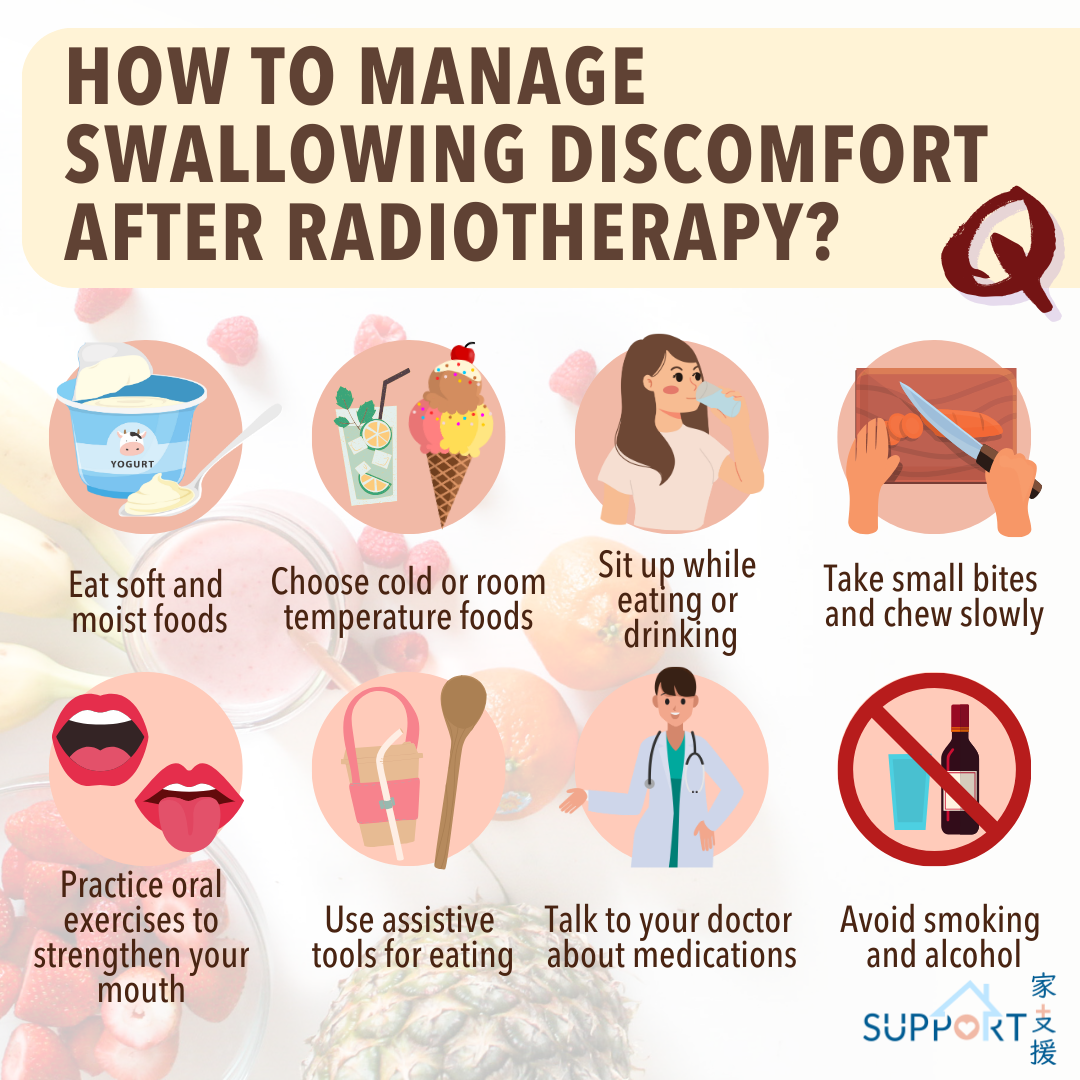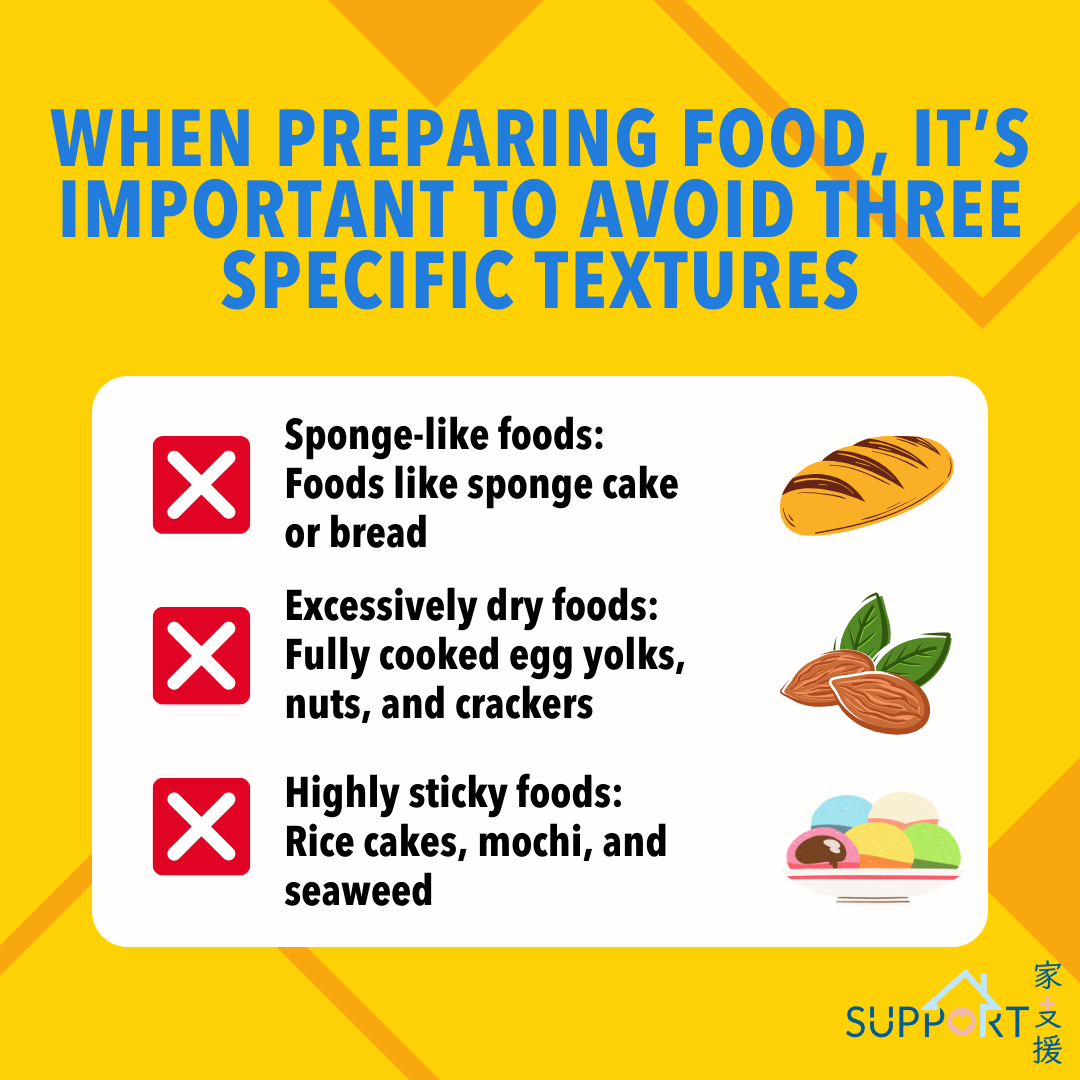Here are some simple tips to help managing these symptoms:

1. Choose Cold or Room Temperature Foods
A sore throat can make you lose your appetite. Eating cold or room temperature foods can help soothe your throat. Try frozen aloe vera or pineapple juice ice cubes. Stay away from hot foods, as they can burn your throat. Also, avoid salty or spicy foods that can irritate it.
2. Sit Up While Eating or Drinking
If you have trouble swallowing, make sure to sit up straight at a 90-degree angle while eating or drinking. Lean slightly forward and lower your head when swallowing to help prevent food from going down the wrong way. Focus on eating to avoid choking. Caregivers should watch the patient's eating habits closely; if the patient seems to struggle, it may be best to take a break before continuing.
3. Take Small Bites and Chew Slowly
If you have difficulty swallowing, it's important to adjust your portion sizes and take small bites. Take your time while eating, chew your food thoroughly before swallowing, and avoid gulping it down. Make sure there are no food pieces left in your mouth before taking another bite. Sipping water or another drink between bites can also help make swallowing easier.
4. Practice Oral Exercises to Strengthen Your Mouth
To help improve swallowing, you can try some oral exercises. Here are a few exercises you can do:
• Make an "O" shape with your lips.
• Open your mouth wide and say "Ah."
• Press your lips together and puff out your cheeks like you're blowing up a balloon.
• Extend and retract your tongue.
• Raise the roof of your mouth and push against your cheeks.
• Practice moving your tongue to help clean your teeth.
These exercises can help with swallowing difficulties.
5. Use Assistive Tools for Eating
If you have trouble moving your tongue or chewing, try using liquid foods or nutritional supplements. You can use a spoon, a thicker straw, or a small syringe to help get food to your throat. Consider taking nutritional supplements that are high in calories and protein, such as milk powders and shakes, to enhance your nutrition.
6. Avoid Smoking and Alcohol
Tobacco is known to cause cancer and can reduce the effectiveness of radiotherapy, making cancer treatment less successful. Alcoholic drinks can also irritate your throat and slow down your recovery after radiotherapy. Because of this, it’s important to avoid smoking, drinking alcohol, and eating foods that may irritate your throat while undergoing treatment.



